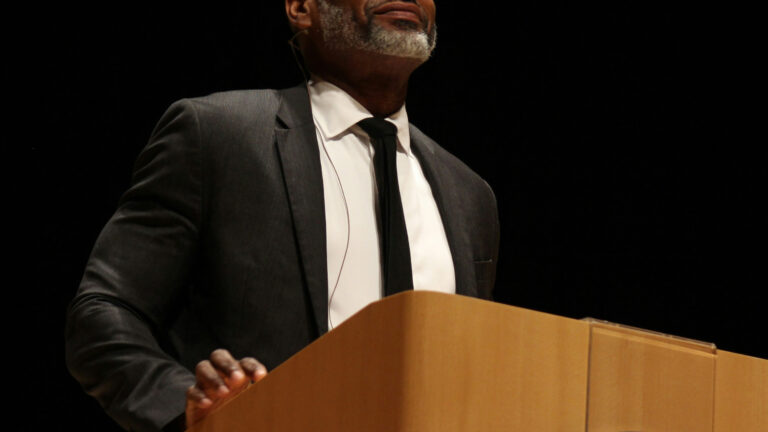I believe that learning the languages of the Bible can be a normal part of Christian discipleship. This may seem to be a shocking or unpopular opinion. But think about it. Christians spend a lot of time reading and listening to other people’s opinions about God. That’s fine. But imagine if they spent a big portion of that time and energy learning the biblical languages. They’d then have the tools to be more discerning, able to go deeper into the Bible for themselves. They’d know how to feed themselves better spiritually, rather than relying on others. There is truth in the idiom: it’s better to teach someone to fish than to give them a fish.
Imagine knowing how to feed ourselves better spiritually, rather than relying on others.
Aren’t Biblical Languages Just For Scholars?
What if Christians spent their time helping others learn the biblical languages for free? Wouldn’t this be an invaluable supplement to simply sharing their great insights, gleaned from knowing the biblical languages? Surely our churches would mature greatly, and people would be able to hold their leaders accountable to sound doctrine. Parents would be able to teach their children better, and fewer people would “wander off into myths” (2 Timothy 4:3-4). Does this sound naively optimistic and unrealistically ambitious? With God all things are possible!
But how can we do this in a way that everyone—even children—can be a part of it? Can this really be a normal part of discipleship, especially if we aren’t academic bookworms? Is there a way forward for people who didn’t grow up reading hundreds of books for fun? Can I really learn the biblical languages if I don’t enjoy analysing ancient grammar and syntax?
A Case Study In Equatorial Guinea
I moved to Equatorial Guinea in 2013. From the beginning I knew that I wanted to empower my brothers and sisters there to translate the Bible into their mother tongue. But I didn’t know anything about oral cultures. Nor was I sure how to teach Greek or Hebrew in a way that most Guineans could enjoy and master.
There’s one way God has wired everyone to learn a language: the way children learn.
After teaching Hebrew twice to Guineans using a traditional textbook, I realised that not everyone is designed by God to learn a language that way. But there is one way that God has wired everyone to learn language, without exception: the way children learn. I saw that my African brothers had ten times the language learning ability that I had. But this only applied if they were encouraged to learn a language the way God created them to learn.
Many Africans Effortlessly Acquire Languages
Many Africans easily learn three or more languages. But not because someone gave them dense, boring textbooks. Rather, they learned by hearing and using them as living languages. So I thought: “What if every African had the opportunity to learn Hebrew like this for free? What if they didn’t have to travel to Israel or the USA to study? What if Africans could experience Hebrew as a living, dynamic language in the comfort of their home, without knowing English, and learn at their own pace?”
Many Africans easily learn three or more languages by hearing and using them as living languages.
This hasn’t really been done before because many of us have become convinced that the biblical languages are for the spiritual elites and erudite scholars. Why do we think this? I believe there are three main reasons.
3 Historical Roadblocks
Firstly, biblical languages are usually taught in an intimidating way, with complicated textbooks. Secondly, we haven’t had the technology. For centuries there has been no way for one person to teach millions of people on a screen. Enter YouTube. This is significant, because languages are learned best with a teacher who shows you how to use them. And thirdly, most people can’t afford the expense of learning Hebrew or Greek through an official institution.
We have to take the intimidation factor out of learning Hebrew.
So, all of those things have to change. We have to take the intimidation factor out of learning Hebrew, and it has to be available for free through a technology most of the world can access. And by the grace of God, Aleph with Beth is now empowering Africans to learn Hebrew in a fun, natural way that requires neither English nor money.
A Unique Opportunity Exists
Our videos are free on YouTube and easily downloadable at lbry.com. We’re doing everything we can to make it easy to download and share all the video lessons, because we know that data isn’t plentiful for everyone. Please, use the videos however you want! They are licensed as ‘creative commons’, which means you can share and copy them without permission. In the videos you’ll only hear Hebrew, just as you learned your mother tongue by hearing only it spoken without translation.
Africans have linguistic strengths that can help the global Church understand the word in beautiful ways.
As Africa grows to eclipse the West as the global heart of Christianity, we’re excited to see God raise up masters of the biblical languages. These men and women will be able to offer amazing new insights into the Bible. For Africans have unique perspectives and linguistic strengths that can help the global Church understand the word in beautiful ways.
Biblical Languages Are Closer Than We Know
I had this experience with my brother Acacio Mba Micha, who was from the Fang people of Equatorial Guinea. As we did an oral translation of the Old Testament together, he often pointed out ways that Hebrew and the Old Testament were easier to understand for a Fang than a Westerner.
Hebrew and the Old Testament were often easier to understand for a Fang than a Westerner.
Hebrew often switches between “he” and “you” within the same context or paragraph (for example Genesis 28:21-22). For the Fang, this is normal. More than this, the Fang bless others, especially their children. They have pure and impure animals. Hebrew uses the number seven symbolically for completion. Likewise Fang has a specific number to communicate the same concept: nine. In Hebrew the word remes, which is sometimes translated as “creeping things,” refers not only to reptiles, but also to insects, rodents, and all kinds of small animals. English doesn’t have an exact word for this category. But Fang does: olɔŋelɔŋ. And the list goes on and on.
Acacio was a genius who would have mastered the biblical languages, especially if he had had a chance to study them in a natural way. But he died two years ago, longing to know Hebrew.
Protestants, Hebrew Is Our Language
We live in a world that is increasingly hostile to the Bible. False teaching is a greater threat than ever because of the internet. Those who don’t have access to the original languages end up being vulnerable to false teaching. This is why we’re encouraged and excited to see people like Moses Musinguzi from Uganda learning Hebrew. More so, his nine year old daughter Eden has joined him.
Muslim children are taught basic Arabic so they can read the Koran… But sadly we were never taught our language – Hebrew.
He writes: “When I recently started learning Hebrew… I got so ‘angry’ that the holy language is not taught in so-called Christian countries like mine. In Uganda, Muslim children are taught basic Arabic so they can read the Koran. The Muslim religious leaders are even proficient in Arabic which gives them a better understanding of their holy book and religion. The Roman Catholic priests also have a working knowledge of Latin. But sadly, as Protestants we were never taught our language, the language of the holy scriptures—Hebrew.”
Moses continues, “For that reason, I believe we are not as knowledgeable as we should be concerning the word of God. Therefore, I am grateful to Aleph with Beth for freely teaching us Hebrew, and for doing so excellently. I pray that one day Hebrew will be taught in Christian countries from early childhood so that Christian children grow up reading the Bible in its original languages. That is why at 44 years old I am doing Aleph with Beth with my daughter.”









